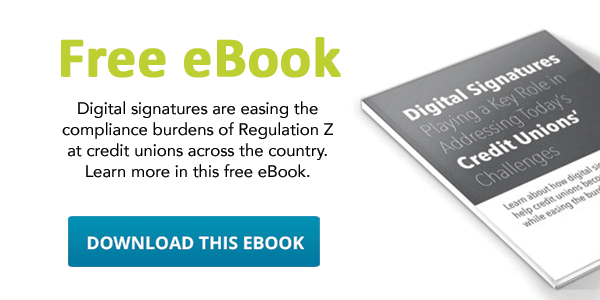 Today, we've got a guest blog post from our friends over at Credit Union Resources. Cynthia Rogstad, AVP Internal Audit, shows us that not all credit union auditors are bad.
Today, we've got a guest blog post from our friends over at Credit Union Resources. Cynthia Rogstad, AVP Internal Audit, shows us that not all credit union auditors are bad.
Nobody likes an auditor or an examiner. I won’t go so far as to say auditors and examiners are hated, but they are often extremely disliked. It’s a wonder any of us willingly decided to become one. A credit union employee once told me they liked me, but they hated the job I do. So how did we get a bad name?
 My first exposure to an examiner was as the president of a very small credit union many years ago. The examiner came in on a Monday morning, unannounced of course, got his calculator out of his bag (they didn’t have laptops back then), took out his green and white tabular pad, pencils, ruler, and eraser, and then pulled out a file folder. Inside the file folder were old newspaper articles, yellowed from age, which the examiner started to read to me about the credit unions he busted for improper activity. What an interesting “first” exposure. There are auditors out there that wouldn’t hesitate to put the fear into credit union staff on day one of an audit. I am proud to say we have no fear-mongering auditors on our staff at Financial and Technology Resources.
My first exposure to an examiner was as the president of a very small credit union many years ago. The examiner came in on a Monday morning, unannounced of course, got his calculator out of his bag (they didn’t have laptops back then), took out his green and white tabular pad, pencils, ruler, and eraser, and then pulled out a file folder. Inside the file folder were old newspaper articles, yellowed from age, which the examiner started to read to me about the credit unions he busted for improper activity. What an interesting “first” exposure. There are auditors out there that wouldn’t hesitate to put the fear into credit union staff on day one of an audit. I am proud to say we have no fear-mongering auditors on our staff at Financial and Technology Resources.
In talking with a fellow League employee, her first experience with an examiner was similar, except he didn’t use yellowed newspaper articles to establish his presence. Her examiner immediately placed red stickers on the file drawers after he arrived at the credit union so if the drawers were opened, the seals would be broken and explanations would be necessary.
The times have definitely changed and hopefully examiners and auditors are now their friendly selves instead of having what I call the “I gotcha” attitude. You are likely laughing that I am so bold as to use “friendly” and “auditors/examiners” in the same sentence. Examiners and auditors are there to do a job. Although the jobs are distinctly different, we all want to ensure the safety and soundness of the credit union and gain a comfort level that the financials are properly stated, that policies and procedures are followed, that internal controls are exercised, that loans are made according to policy and the credit union has documented its lien on collateral, that investments are proper, and that cash truly does exist, among other things.
No one likes to be told they made a mistake. Having an auditor find a mistake in time to correct it before the examiners arrive should be the hope of all involved.
Even though your auditor looked at something in the last audit, they most likely will look at it again. This is because staff and policies change, procedures change, electronic data processing systems change, and for an auditor to “assume” everything is the same as last year can make for a bad assumption and a big mistake.
The job is about more than trust; auditors simply have to verify what they are told. For example, let’s take a policy revision that was recommended in a prior exam or audit. The policy was rewritten to implement the suggestions, but in the rush to get the Board packet together, the revised policy was overlooked. Or maybe the policy was approved, but was never placed into the electronic system or hard copy format where policies are stored, and staff was never trained. An approved policy that was never presented to staff is as though the policy was never updated because it is not being followed.
Auditors have a limited time to get a big job done, and unfortunately, sometimes we can appear overbearing. We all want credit unions to be as successful as possible and if there are issues found, we should all rejoice so management can resolve issues before the examiners arrive or before a member’s attorney brings a mistake to the credit union’s attention.
We might also bring something to your attention that seems insignificant, but there is nothing worse than that little insignificant thing becoming a big bump down the road. So, if we see it, we’ll tell you about it and let you decide if it needs to be addressed based on the risk you determine might be involved.
Yes, the dreaded auditors are at the credit union and hopefully they arrive with a positive attitude of being there to help instead of having the “I gotcha” attitude. We really are there to help, not stand in your way of getting your job done and making your credit union the very best it can be.
%20formatted-1.png?width=2528&height=739&name=SIGNiX%20Logo%20Main%20(white)%20formatted-1.png)

